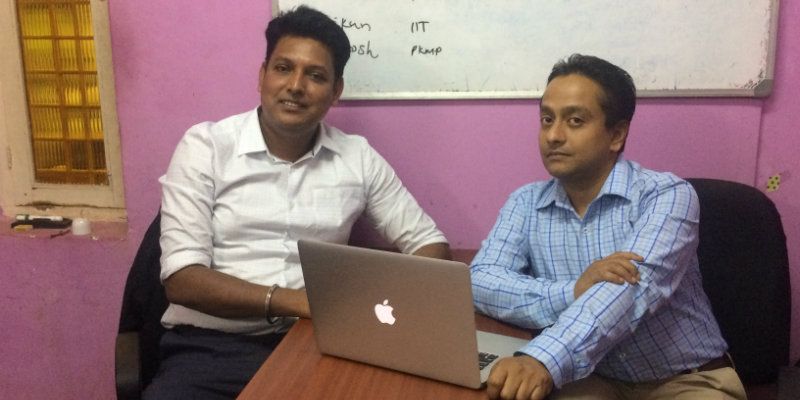With its suite of workshops, ProductSC gets IT professionals product-ready
Bootstrapped ProductSc helps IT professionals and organisations in the discovery, design and implementation phase of technology products with consultations and workshops.
At a Glance
Startup: ProductSC
Founder: Pinak Pani Paul
Year it was founded: 2017
Where it is based: Bengaluru
Sector: Edtech
The problem it solves: A classroom learning platform for IT professionals and organisations
Funding raised: Bootstrapped
After spending over 12 years in the corporate world in a variety of technical and managerial positions, Pinak Pani Paul realised something that led him towards entrepreneurship.
“I started realising that in India, the majority of the product startups fail not because of incompetence in terms of technical skills. They fail because most of the products are run by IT workforce, who are either from service background or equipped with working in typical project-driven environments.”
Pinak has earlier worked in IT companies such as TCS, DSL Software (Software Division of Deutsche Bank, later acquired by HCL), Arcot R&D (acquired by CA), and LG Soft.
He says the situation is unlike what happens in the US. “We launch wrong products without proper guidance or proper market validation. Often, tech-savvy people fall in the trap building a product full of features by putting a lot of effort, and sometimes for years or so using high-end technology. And later, either they struggle and fail to get a single customer or cannot scale. As a result, they are forced to make too many changes by performing re-engineering activities in order to cater to the need of an early adopter.”

The impact being that startups lose a lot of money, effort and time by adopting the wrong approach.
To change the scenario, Pinak started ProductSC in 2017, a learning platform for IT professionals and organisations to help in discovery, design and implementation phase of technology products, through its workshops.
The platform also provides consulting services with its screening and diagnosis mechanism for those with an idea, a prototype or a working product, in order to make it a commercial success.
The list of workshops it has for IT professionals, startups, tech organisations, and SMEs include a vast range of topics like:
Market Research for Tech Products & MVP Identification
Traffic and Conversion Improvement
Product Ideation, Prototyping and Wireframing
Business Case for Technology Products
Product Management for Technology Professionals
Product Evangelism
Advanced Ecommerce Suite Development
The consulting services span across idea validation, prototype evaluation, product diagnosis, problem discovery, market share development, and growth and pitch - business plan development.
Talking about the challenges in building the platform, Pinak says:
“In India, majority of the IT workforce is absolutely clueless about the key differences between product management, project management and programme management. Creating awareness for the platform and product management as a discipline were the top challenges.”
Pinak developed a learning content (material, business case studies, hands-on exercises), in consultation with volunteer alumni from IIM Bangalore, IIM Kozhikode, ISB Hyderabad, NIT Silchar, and IIT Delhi.
Within a couple of months after launching the platform, Pinak got in touch with his friend Tarakant Nayak, who ran a software development company called Hignosis IT Solutions, and got him on board as a mentor and investor. Its current team size is 14.

ProductSC earns its revenue from B2C segments and startups, but eventually would like to monetise from B2B enterprises and SMEs as well.
“We have already received queries in this regard. ProductSC has conducted over 25 workshops with a total of 250 people. Our webinars get views from about 45,000 people on an average,” he says.
It has built courses based on the necessity of target segments, eg, depth, interest and shorter time duration. The speciality workshop for “Advanced Ecommerce Suite Development,” is a curriculum designed for people interested in a blend of both product engineering and product management. The company charges in the range of Rs 5,000 to Rs 80,000.
According to media reports, the Indian domestic software products market currently stands at $4.8 billion, and is growing at 10.4 percent annually.
Industry body Nasscom claims software products play a vital role in Indian IT growth in future and estimates India to churn 2,000 software startups every year by 2020 as compared with 800 in 2014. The revenue from the software product segment currently stands at $2.2 billion, and is expected to reach $10 billion by 2020.
ProductSC faces competition from organisations engaged in product management and product consultation.
Talking about its differentiator, Pinak says, “Currently, in India, the classroom workshops related to product management and product evangelism are inadequate. However, I made sure that ProductSC includes plenty of hands-on exercises, case studies relevant to domains, and individual-specific interest with affordable fee structure. The course structure is tailor-made based on the need of professionals and individuals.”
The company is currently bootstrapped.
Going forward, ProductSC aspires to build and deliver speciality workshops from various parts of India, including Mumbai, Hyderabad, NCR, Chennai, and Pune.
“We would also like to reach Kolkata and Guwahati as well. We want to cover few thousands of individuals and startups, SMEs, and established organisations altogether. We also want to provide an adaptive mechanism for successful delivery of technology products from India by 2022, along with building a sustainable and an expandable model. Also, in coming days, we would come up with relevant speciality workshops based on market demand,” says Pinak.






